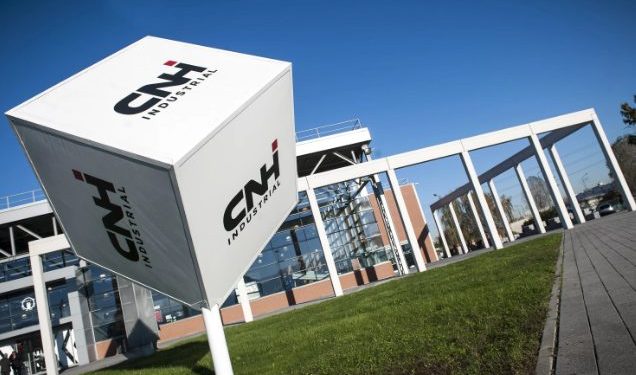#PrecisionSpraying #AgriculturalTechnology #SustainableFarming #ResourceOptimization #CropYields
CNH Industrial, a leading manufacturer of agricultural equipment, and One Smart Spray, a cutting-edge technology company, have joined forces to integrate a precision spraying solution that promises to revolutionize agricultural practices. This collaboration aims to enhance efficiency and sustainability in the farming industry by optimizing the application of pesticides, herbicides, and fertilizers. The integration of this advanced technology is expected to have far-reaching consequences, leading to increased crop yields, reduced environmental impact, and improved resource management.
CNH Industrial and One Smart Spray have come together to address the pressing need for more sustainable and efficient agricultural practices. By integrating their expertise and technologies, they aim to revolutionize the way crops are treated and managed, ultimately benefiting farmers, consumers, and the environment.
The precision spraying solution developed by One Smart Spray utilizes advanced sensing technologies, artificial intelligence, and machine learning algorithms to precisely target areas of a field that require treatment. This technology eliminates the need for blanket spraying, where chemicals are applied uniformly across an entire field. Instead, the integrated system analyzes data collected from various sources, including sensors, satellite imagery, and weather forecasts, to determine the optimal amount and timing of spraying for each specific area. This approach ensures that resources are used efficiently, minimizing chemical usage and reducing potential harm to the environment.
CNH Industrial’s contribution to this collaboration lies in integrating the precision spraying solution with their agricultural machinery, such as tractors and sprayers. By seamlessly integrating the technology into their equipment, CNH Industrial aims to make precision spraying accessible and convenient for farmers worldwide. This integration will provide farmers with real-time data and insights, enabling them to make informed decisions about crop treatment, improve productivity, and reduce costs.
The integration of CNH Industrial and One Smart Spray’s precision spraying solution holds significant implications for the agricultural industry and beyond.
Enhanced Crop Yields: By accurately targeting areas that require treatment, the precision spraying solution optimizes the application of pesticides, herbicides, and fertilizers. This targeted approach ensures that crops receive the necessary treatment, leading to improved yields and overall farm productivity.
Reduced Environmental Impact: The precision spraying system minimizes chemical usage by only applying treatments where they are needed. This targeted approach reduces the potential for chemical runoff, soil contamination, and adverse effects on beneficial organisms. Consequently, the integration of this technology contributes to more sustainable farming practices, preserving ecosystems and promoting biodiversity.
Resource Management: The integration of advanced sensing technologies and machine learning algorithms enables farmers to make data-driven decisions about crop treatment. By optimizing the use of resources such as water, chemicals, and energy, farmers can reduce waste, save costs, and improve overall resource management.
Technological Advancements: The collaboration between CNH Industrial and One Smart Spray showcases the potential of integrating cutting-edge technologies in the agricultural sector. This partnership serves as a model for future collaborations that can drive innovation, improve efficiency, and address pressing challenges faced by the global farming community.
The integration of CNH Industrial and One Smart Spray’s precision spraying solution marks a significant step forward in optimizing agricultural practices. By leveraging advanced technologies, this collaboration promises to enhance efficiency, sustainability, and productivity in the farming industry. With the potential for increased crop yields, reduced environmental impact, and improved resource management, this integration sets the stage for a more sustainable and prosperous future for agriculture.







